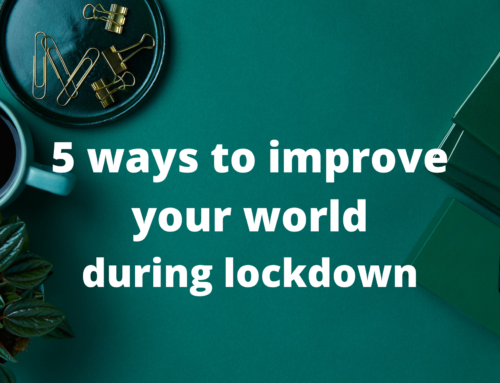We are continuing on with our series aimed at sharing ideas with parents who are looking for some creative ways to parent better.
#40TipsForParents
40 Tips for Parents: Tip #11
Talk to your children about important things first.
This links to explaining things and raising the bar [tips 4 & 5] but is a little more specific.
Some people are really great and feel at ease when talking about topics like sex, periods, racism, addiction. For others it can be awkward, terrifying or confusing [because you’re not sure you know the right answers or how to verbalise them]. So this tip will be more relevant to some than others.
But keep this in mind – if you don’t get there first when it comes to educating your children well on important things then someone else will. You may be lucky and it may be a teacher or lifeskills program or responsible adult… but the bigger likelihood is that it will be a friend at school or, probably even worse, the internet or tv/the movies.
You do not want a computer game like Need for Speed teaching your son how to treat women. You probably don’t want an American sitcom or even animated show [maybe especially animated show these days!] teaching your child about sex. And so on.
So if you are nervous or apprehensive or scared you don’t know enough or are going to mess it up, get help. Ask your friends how they did the sex talk. Look online – there is an amazing video we use at LifeMatters that explains the concept of Consent in a fun and brilliantly simple-yet-direct way – in fact just check it out cos it is gold: – but there is help out there i am saying. You do not have to do this alone.
One of the tricky parts of this is figuring out the timing and again i would probably crowd source your parent friends to get some idea. Alsoi would do it directly [leaving a book on their bed probably not the best way] and be honest if you are nervous or awkward cos that will hopefully make it less so for them.
How old must they be before we do the sex talk? Do i need to explain periods to my son? [i learnt the most i have learnt about periods by being part of the LifeMatters Foundation Lifeskills course and think it is super helpful that the boys get educated on the topic alongside the girls – takes a lot of the weirdness out of it and just helps people to understand something that is part of every day life]. Should i speak about the dangers of drugs or will that make them curious? Would love some parents to weigh in on these questions and others… i imagine a lot of it depends on your particular kids – no one-size-fits-all but probably some really helpful pointers. Plus i imagine the answers today might be different than they were 20 years ago because of access to information and so on…
i wonder if, for some of you, around the dinner table once a week might a great place for some of these talks – normalises them, there is the distraction of food, creates a space for open,honest conversation and people can take turns choosing the topic. Anyone done this?
Don’t let the wrong people educate your children on the important issues and topics in their lives. Talk to your children about the important things first.
#40TipsForParents
= = = = = = = = = =
40 Tips for Parents: Tip #12
40 Tips for Parents: Tip #13
Separate chores from rewards.
Okay, this might be a bit of a controversial one but let me remind you that this is meant to be an engagement and conversation and thank you to all the parents who have jumped in and added much needed commentary [you are the experienced ones in these things!] and so this is perhaps slightly more of an idea to hold out than a tip, but i do think there is some merit in it.
And please don’t feel judged if you are doing this but consider the conversation and ask the question as to whether there may be a better way.
When it comes to household responsibilities [and this is MUCH easier to grasp as an adult!] everyone who lives in the house should contribute to the functioning of the house. That seems fair. So dishes, taking out the trash, laundry, dusting, packing things away and so on…
In many households doing the chores is linked to pocket money/allowance which i totally get, but which also sends the mixed message perhaps that ‘I am paying you for doing this thing, rather than you are doing this thing cos you are part of this household.’
So my suggestion is to keep pocket money/allowance [if you do that kind of thing] separate from the duties your children have in the running of the house. Again [tip #4] i think this will go so much more smoothly if you take time to explain this to your children in terms of being inhabitants of the shared space. Rather than ‘You will do the dishes because I said so!’
There is a value present when we can teach our children the responsibilities that are part of being in a community, whether that is family or school or sports team or church or local community. When the child is rewarded for doing something they should just be doing as part of the community, that value is watered down or pushed to the side altogether.
i imagine there are some creative ways out there as to how to get your children to do their chores and it might be family-chore-hour on a Saturday morning when you pump the music and everyone does their thing at the same time. Or it might be some kind of stars-on-a-chart creative celebration system that is not monetised and which includes the parents and is more of a recognition that we did the things we needed to do [yay us!] rather than this-is-what-you-get-for-doing-that.
Any thoughts on this one? i remember hating doing the dishes at home or cleaning my room [but then probably had a ‘because I said so’ motivation rather than a sit down conversation and explanation]. So i don’t think it’s an easy one. But i think there is huge value in pursuing something that teaches your children a mutual responsibility that ‘I am part of this thing and this is my contribution!’
Parents and chores? What are your stories and tips?
#40TipsForParents
= = = = = = = = = =
40 Tips for Parents: Tip #14
Embrace their difficult questions.
After a seriously heavy week in South Africa, i imagine there were some children who heard some things and were asking their parents questions like, “What is Xenophobia?” and “What does rape mean?” or “Why is everyone standing at the side of the road with posters?” and variations of those.
For some of you those might seem like overwhelming conversations to contemplate and i have seen on social media a number of parents asking, “How do I speak to my child about this?” i would suggest that when a child comes with a question like that, it is an opportunity to unpack some helpful ideas and start to set them up well for the future.
You probably know your child the best and so when it comes to things like age appropriateness or where your child is at or how they might respond, you probably have a really great handle on that, but you this is not something you have to figure out by yourself – if there are teachers who know your child or your friends with children of a similar age, then figure these hard ones out in community.
i do think it is super helpful to address the questions though, and for some who might not be asking questions to use the news or a picture they see or a protest you drive past as a catalyst to approach some of these topics.
You do not have to say everything, but i think it is helpful to say something. A conversation about rape with a five year old will probably look a lot different than one with a ten year old. And with a younger child you can probably be a bit more general or vague [when a man hurts a woman or does something she doesn’t like] to give them the heart of the thing without the specifics they may not be ready to understand, whereas with an older child you may want to be more explicit and clear.
Asking question can be helpful because children often know a lot more than we realise or give them credit for. So starting with, “What do you understand by…?” or “What do you think is happening?” might be helpful in building a sort of knowledge foundation that you can fill in the blanks to.
It must often be tempting to avoid such horrible topics completely, especially if you are struggling to cope yourself, but i do think it will be more beneficial for all of you, and in terms of developing a sense of honesty and intimacy as a family, to give them the focus if feels like they deserve [and it is okay to cry in front of your kids and show them how deeply the current topic is affecting you].
So don’t feel like you have to go it alone – connect with others who might be facing the same conversations and brainstorm a group strategy – i wonder if it might even be viable to have a group of children together and tackle it as a group of parents in conversation… but take the opportunities that present themselves as opportunities to share values with your children in terms of how you respond and embrace the difficult questions and conversations.
Alexa Russell Matthews: Keep it simple, keep it honest and be mindful of my own emotions as I communicate things is what I use to guide things – we have had conversations about genocide, refugees, racial & economic inequality, apartheid and why people were marching using these guidelines with my 4 year old. Ultimately the parenting goal in this for me is raise sons who are socially engaged and aware, with a practical compassion and empathy that helps them ask the bigger questions.
Heidi Segal: Some thoughts emerging from the rage, but still needing words. Re how young – soon as they can read headlines on lamp posts “Girl, 7, raped.” unless you’re happy for someone in the playground to explain these things to your kid?
Caren Falconer: I am a Christian and we have always explained life in SA to our kids in an age appropriate way. You know your kids…the way they tick. I agree with Heidi that if they can read you need to up your game. I recall some wise words someone gave us once… You think.kids don’t know something is up but they do and are confused and scared etc. They want the comfort of an adult coming alongside them and explaining – comforting and acknowledging.
Barry Ashmole: Thanks Brett! Useful advice would be to encourage ongoing conversations, rather than the often typical ‘the talk’ or speech. Of course it is helpful to give information, but try to work on opening the space for them to question and encourage to seek answers/info for discussion rather than sermonising, always trying to be aware of one’s own biases (conscious and unconscious) pushing through.
#40TipsForParents
= = = = = = = = = =
40 Tips for Parents: Tip #15
Teach them that winning is not everything. And that being negatively competitive is not good.
Love this meme i saw this week that read:
The world is a competitive place and a huge part of the disparity we see around us between those who have and those who lack has been caused by a system and mindset that says accumulating as much as i possibly can is the way to live well.
As parents, and schoolteachers, and sports coaches, we often feed into that narrative with a ‘win at all costs’ mentality or ‘winning means you’re better than someone else’.
If we can devote greater energy and creativity to the HOW of the things rather than the final scoreline, then we might find that our children are winners, regardless. Things like teamwork and personal integrity and chasing your own person goals are worthwhile things to pursue.
Teaching children to win well can be as important as helping them to lose well and both deserve some time and energy. These are both things i have continued to need to work on in my forties which is a lot harder than if i had embraced healthier habits and attitudes earlier on.
A similar thing applies to schoolwork and results where it often seems to be a lot more about the parent than the child. But either way, teaching a child to work hard but not overly hard [create spaces for children to be children and just enjoy life and explore and discover and celebrate] as well as breaking any kind of link between results and identity.
You are not loved more because you get better results. My love for you should not be affected by external factors.
If we help children get to a place where playing the game is the focus then it will be a good game whoever wins. If we can get young people to embrace the process of learning [questioning, challenging, discovery, wrestling, investigating] then it doesn’t really matter what numbers appear on the report at the end.
Let’s teach our children that winning is not everything.
#40TipsForParents
[For the next 5 tips, click here!]
[To return to the start of this series and catch up on some tips you may have missed, click here]




![But what can I do about race? [Ideas 1-5]](https://brettfish.co.za/wp-content/uploads/2018/08/cb-500x383.gif)



Leave a Reply